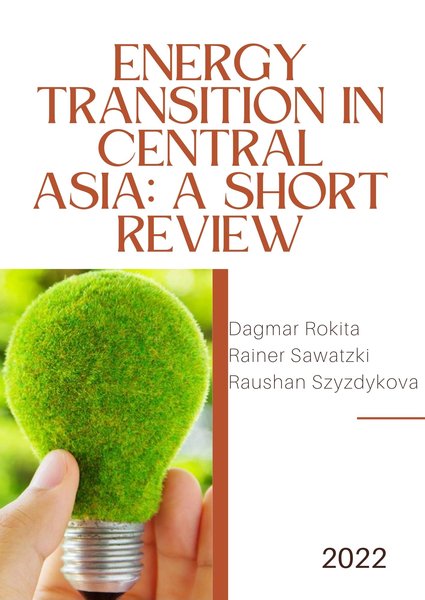




Год: 2022
Разделы: Научные публикации
Темы: Энергетика
Авторы: Rokita Dagmar, Sawatzki Rainer, Szyzdykova Raushan
Страны: Казахстан, Кыргызстан, Узбекистан, Таджикистан, Туркменистан
Источник:
Файлы для скачивания:
The five countries of Central Asia, Kazakhstan, Kyrgyzstan, Uzbekistan, Tajikistan and Turkmenistan, have each adopted climate targets to achieve the climate goals agreed in Paris by 2050.
In this paper, the starting positions of all five countries are presented and the respective obstacles on the path to climate neutrality are identified. The starting positions in the countries with large oil, gas or coal reserves (Kazakhstan, Uzbekistan and Turkmenistan) differ from the countries where the basis of energy supply are large hydroelectric plants (Kyrgyzstan and Tajikistan).
One problem in all countries is the poorly developed power grid, which is partly outdated and not designed for high throughput rates. Existing power plants are mainly located in metropolitan regions and rural areas are partly undersupplied. If wind and solar power plants are built on a large scale in uninhabited areas, the lack of transmission lines is a major problem.
Another problem is that energy prices are sometimes heavily subsidised, which can make it difficult for the population to accept necessary investments in the renewable energy sector. Especially in economically weak sections of the population, resistance to market-based energy prices is likely to be particularly strong. In the long term, information and increased education of large parts of the population can significantly improve the acceptance of the energy transition from carbon-based energy to solar, wind and small hydropower.
The use of renewable energy is still in its infancy in all countries and must develop quickly if the ambitious climate goals are to be achieved. To this end, the training of local experts is particularly important. To this end, centres should be established at selected locations where local experts can be trained and further educated in various fields, from conception and planning to construction, maintenance and operation.
По всем вопросам сотрудничества обращайтесь по эл.адресу или телефону: